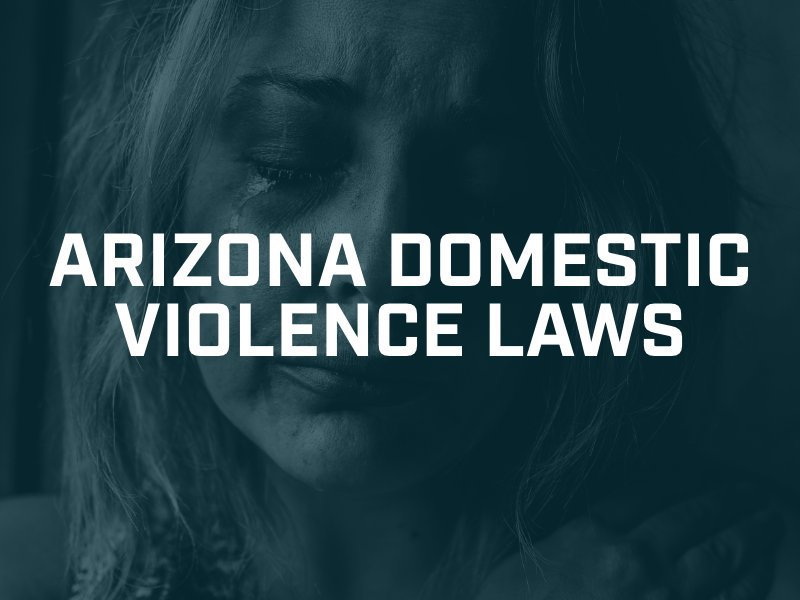
Posted on April 6, 2020 in Domestic Violence
Domestic violence is a crime frequently alleged in Arizona. Many cases involve false accusations. Others are domestic disputes that get out of control, after which the person who called the police may try to take back the accusation. After calling the police about alleged domestic violence, however, the state will have jurisdiction over the case – whether the caller rescinds the allegation or not. If prosecutors are charging you or a loved one with a domestic violence crime, learn the related laws in Arizona to understand your situation and rights. If you have any further questions, reach out to a qualified Phoenix domestic violence attorney.

Arizona has a broad definition of domestic violence. Rather than articulating precisely what constitutes the crime of domestic violence, Arizona Revised Statute 13-3601 defines it as any offense as described by other sections of the law. These include sections 13-1102 to 13-1105, 13-1201 to 13-1204, 13-1302 to 13-1304 and 13-1502 to 13-1504. Domestic violence can also refer to any dangerous crime against a child as defined in Arizona Revised Statute 13-705. The state could charge a defendant with many crimes during a domestic violence case.
To meet the definition of domestic violence, the defendant must have committed the crime in question against a specific party. The plaintiff and defendant must have or formerly have had a romantic relationship (including marriage or former marriage), lived under the same roof, have a child in common, be blood relatives, be related by court order or marriage, or the victim must be a child who resided in the same household as the defendant and who is blood-related to the defendant’s former spouse or roommate.
Since the State of Arizona charges domestic violence as the crime it involves, not a crime in itself, the penalties will match those enforced for the base crime. However, a domestic violence addition could result in greater penalties on top of the base sentence. Adding domestic violence to any conviction in Arizona could increase the defendant’s jail time, limit the defendant’s ability to qualify for parole or probation, lead to required domestic violence counseling, and have other adverse consequences.
Most domestic violence cases are misdemeanor charges. If convicted of a Class 3 domestic violence misdemeanor, a defendant in Arizona could face up to 30 days in jail and/or fines of up to $500. These penalties increase to 120 days in jail and/or $750 in fines for a Class 2 misdemeanor and up to 180 days in jail and/or $2,500 in fines for a Class 1 misdemeanor. If the courts convict you of a domestic violence crime three or more times within 84 months, it is a Class 5 felony, punishable with up to 2.5 years in prison. If your case involves a serious bodily injury to the victim, the charge could increase to a Class 3 felony, with a sentence of 5 to 15 years in prison.
In Arizona, the state has a maximum of one year to file a misdemeanor charge against you for alleged domestic violence. This statute of limitations increases to seven years for a felony charge and decreases to six months for a minor infraction. After the courts officially bring a charge against you, you will enter a plea. Hire a domestic violence defense lawyer in Arizona for advice on how to proceed. Your lawyer can help you with processes such as interrogations with law enforcement officers and a criminal trial.
Your lawyer will be able to craft a defense strategy suitable for your situation. Possible defenses to domestic violence charges in Arizona can include wrong defendant, alibi, self-defense, defense of others, false accusation, insufficient evidence and police misconduct. The right defense strategy could lead to the courts dismissing all charges against you – or at least reducing the consequences you face. Speak to a lawyer as soon as possible about a domestic violence charge in Arizona.